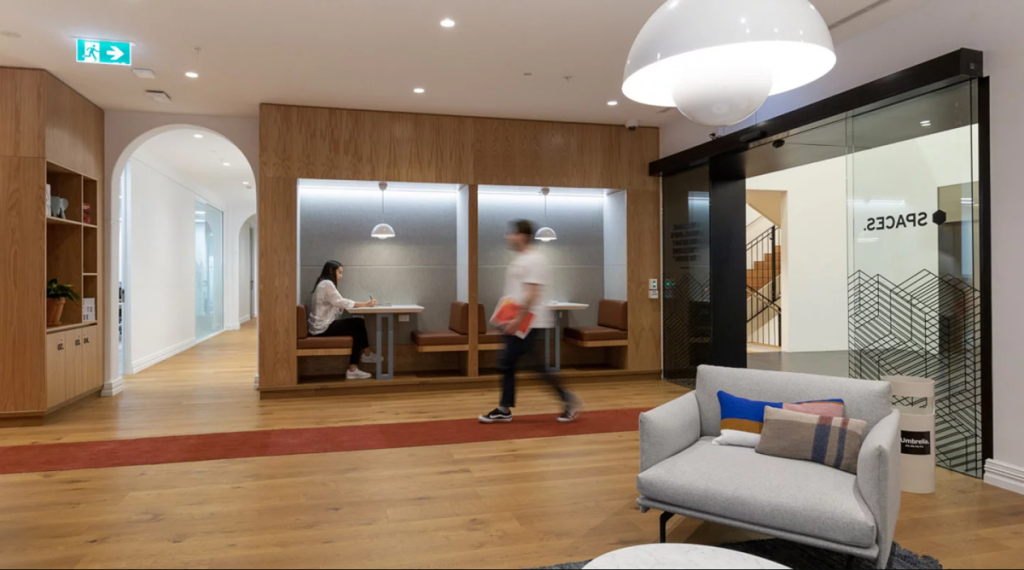
Coworking space or traditional office: which is right for your business?
SPONSORED CONTENT
With the very nature of work undergoing rapid evolution, it’s no surprise that the format of actual work spaces is becoming a key consideration for businesses everywhere.
While the one-size-fits-all traditional private office environment once ruled the roost, today’s drive for greater flexibility means that options like coworking spaces are becoming increasingly attractive.
So, just what are the major differences between traditional and shared spaces, and what are the key factors to consider when deciding the right type of premises for your business?
Long term v short term
Bottom-line considerations are always a major driver for any business when considering premises. For organisations looking to avoid the costs and commitment of a traditional long-term lease, coworking spaces can provide a flexible – and cost-effective – alternative.
“Coworking spaces are ideal for companies that don’t want to pay for traditional overheads like rent, electricity, technology and infrastructure,” says John Cooksey, director of Melbourne-based HR consultancy Affinity People.
“They offer a lower-cost, lower-commitment, flexible entry into a particular market. This could be highly attractive for a company that’s coming into the country that doesn’t know if it’s going to stay long term.”
Networking v distraction-free
For companies that recognise value in having their staff interact with workers from other industries and areas of expertise, coworking spaces are an obvious choice.
However, there can still be reasons to opt for more traditional environments, particularly for those who crave stability and continuity.
“A major upside of coworking spaces is the ability to network,” says Cooksey.
“There’s always different sorts of people around and they tend to be all looking to connect in one way or another.
“A lot of coworking spaces also provide regular networking opportunities, regular coffee meet-ups, and bring in guest speakers. I even heard of one space putting in a golf simulator. There’s a limit, of course – that fine line between connecting people for positive outcome versus creating a distraction people don’t need.”
Stability v innovation
For some businesses, office continuity can reap enormous benefits around worker mindset and productivity. For others, the dynamism of a coworking space can inspire new and exciting outcomes.
“If you’re the type of person who likes continuity and being part of an ongoing cohesive team, you’re not the sort of person who should put your business into a coworking space,” says Cooksey. “However, if you like the idea of a contemporary, dynamic, shared, collaborative space with all the possibilities for rapid change that it entails, it might be just the thing.”
Cooksey says some larger companies are putting their project teams into coworking spaces to inspire new ways of thinking.
“As a result of removing them from the traditional working model, they’re actually finding that teams in these new environments are nimbler and are more able to respond to changes in the market.”
When it comes to the provision of dynamic shared spaces, Amsterdam-born coworking pioneer, Spaces – part of the International Workplace Group (IWG) – is meeting a vital need.
Offering a range of flexible workspace solutions, including fully furnished offices, coworking spaces, meeting rooms and virtual offices, Spaces operates six coworking locations across Australia, including recently opened premises in Perth’s Wentworth Building and Melbourne’s One Melbourne Quarter. Spaces at Sydney’s Martin Place and Brisbane’s Riparian Plaza will be open in early 2020.
According to Damien Sheehan, country head of Spaces Australia, the decision to opt for a coworking environment is governed by a range of factors.
“It all comes down to individual business needs,” he says. “For example, it’s the perfect option for companies that are looking to boost team collaboration within a community environment, which enables stimulating interactions with like-minded people.
“From a budgetary perspective, the option is also highly attractive. We provide fully furnished workspaces for companies of all sizes, offering flexible contract terms and the freedom to expand or reduce workspaces based on changing business needs.
“At the same time, we provide the type of services and facilities available in a professional workspace, such as barista coffee, secure business-grade internet, high-speed Wi-Fi, friendly receptionists, administrative supports, plus worldwide access to all Spaces business clubs.”
This article has been created in partnership with Spaces.
Get a weekly roundup of the latest news from Commercial Real Estate, delivered straight to your inbox!






